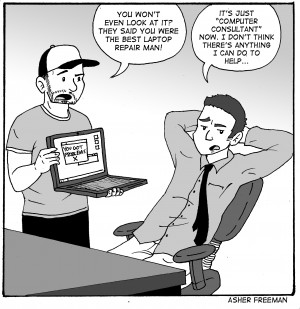 America’s youths need strong leaders. Sometimes just one decision can change a child’s life from heading in a good direction to a disastrous one. America’s young people face problems like dropping out of school, substance abuse, teen pregnancy, STDs, crime, hunger, violence, cyberbullying, eating disorders and steroid use. Thankfully, the U.S. has outstanding parents, teachers, guidance councilers, school administrators, coaches, youth pastors, role models and other mentors to help its youth.
America’s youths need strong leaders. Sometimes just one decision can change a child’s life from heading in a good direction to a disastrous one. America’s young people face problems like dropping out of school, substance abuse, teen pregnancy, STDs, crime, hunger, violence, cyberbullying, eating disorders and steroid use. Thankfully, the U.S. has outstanding parents, teachers, guidance councilers, school administrators, coaches, youth pastors, role models and other mentors to help its youth.
Pastor Troy Schmidt was one of those mentors for Florida’s Olympia High School football team until he quit when his title was changed from chaplain to life coach.
For the past six years Schmidt volunteered as a chaplain for Olympia’s football team. Schmidt prayed with the team before and after games and inspired the players with stories from the Bible. When the Wisconsin based Freedom From Religion Foundation learned about Schmidt’s role in the school, it threatened a suit against the Orange County Public School District if the school did not remove all chaplains and displays of religion from their schools.
As a result, the school district changed Schmidt’s title from chaplain to life coach and banned all references to religion on school property. As a life coach, Schmidt could still meet with students but he could not pray, promote religion or quote any religious texts. Schmidt declined the offer to be a life coach, saying, “That’s not me. I don’t get any inspiration besides what I get in the Bible.”
But Schmidt didn’t go quietly. He took to national airwaves to proclaim that the foundation was infringing on his right to express his views. “Well, I don’t think they’ve read the Constitution,” Schmidt said. “It’s pretty clear that they cannot prohibit my free expression of my faith or the free expression of the coaches to express their faith. They’re telling us to be atheists when we want to say, ‘This is what we believe’ and we want to express it freely like the Constitution says.”
Instead of embracing his new role as a life coach, Schmidt decided to remove himself from a mentoring role for the children alltogether, unless they go to his church. To his credit, Schmidt did say he would unofficially still go to football games and bring the children food because many children depend on his ministry for meals.
This is commendable and important, but it’s just one issue on a long list. Schmidt could do more for the children if he would mentor them, even without mentioning his faith. Ultimately, the team is better off with a pastor who can’t invoke religion than they are without the pastor all together.
But the children got lost in the noise. Schmidt and his supporters tried to make Schmidt into the victim instead of the children. “I refuse the title of life coach. I don’t want to be turned into an atheist chaplain, which is what they’re trying to do,” Schmidt said. But imagine if Olympia High School had a team imam leading the football players in prayer to Allah. Would the Christian community express outrage about this man’s freedom of expression if he were forced to become a life coach instead of an imam? Would Schmidt go on national TV and declare that the foundation was suppressing this imam’s freedom of expression? Probably not, and that is the real rub. The outrage over this issue is more about hurt feelings than what is best for the children.
In a memo explaining the new policy, the school district said, “Having a team chaplain is not permitted as it is an unconstitutional endorsement of religion in the same manner as a school employee participating in prayer with students. Again, in this area the law is very clear.” That is not an unreasonable statement. It seems more reasonable for pastors like Schmidt to embrace their role as life coaches, even though they can’t invoke religion, than it does to expect one religion to be endorsed over others in a public school.
Not every child in Orange County, Fla., or the rest of the U.S., is Christian, and their constitutional rights are just as important as those of Christian students. These non-Christians still deserve mentors to help them navigate the many complex problems children face every day.
As a life coach, Schmidt could help guide the children toward making good decisions and, if those children chose to on their own time, they could visit Schmidt’s church for spiritual guidance. That is what ministry looks like at public institutions in a nation with separation of church and state. Private schools are the answer for parents and ministers like Schmidt who want children to receive a Christian education. In fact, this is the very reason why great Christian institutions like Baylor exist and are necessary.
Even though being a life coach obviously isn’t the ideal situation for what Schmidt wants, he should compromise and think of what is best for the children first. Being a man of faith isn’t always easy, but America’s children need mentors. The complex issues of freedom of religion and separation of church and state will not get solved through the foundation and Schmit’s supporters going blow for blow on America’s airwaves. The only question any of us should be asking is about what is best for the children, and the atheist and Christian communities should be able to set their differences aside to answer that question.






